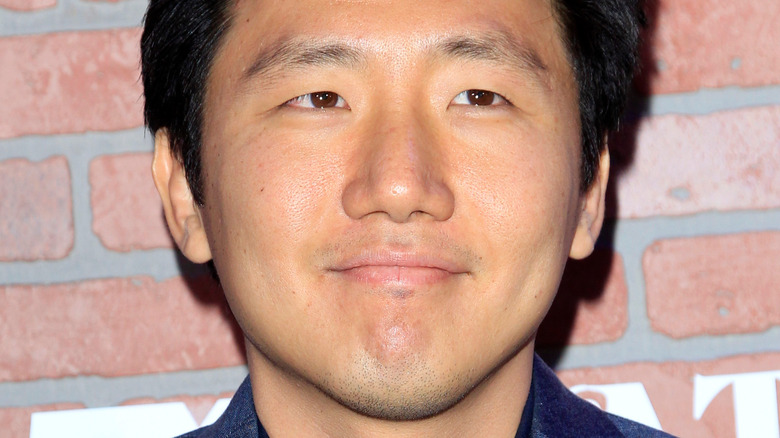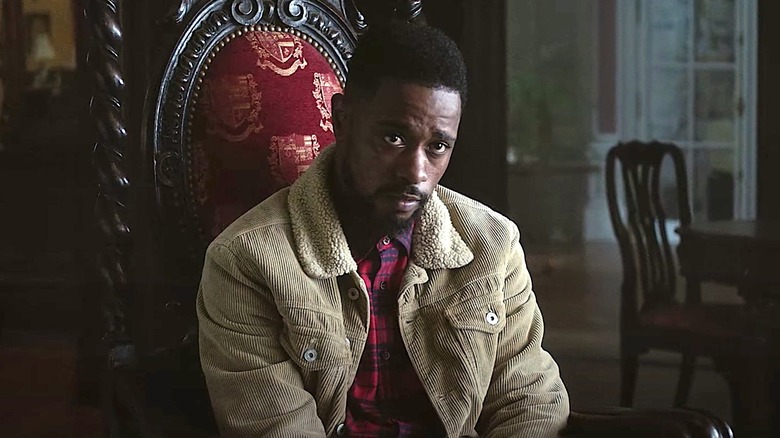Atlanta Director Says Leaving The Show Centered Around Darius Just Made Sense
Contains spoilers for "Atlanta" Season 4, Episode 10 — "It Was All a Dream"
The series finale of "Atlanta" is finally upon us, and it's safe to say the lauded seriocomic series went out with a suitably head-spinning bang. If you haven't yet caught the series' final episode, be warned you may indeed find a spoiler or two ahead. If you've already been down the rabbit hole of a finale, well, you know Earnest "Earn" Marks (Donald Glover) and the "Atlanta" crew went out in a hail of high-concept introspection, razor-sharp comedy, and piercing social commentary.
That formula has served the Donald Glover-created series exceedingly well over the years, with critics and audiences alike praising the show's heady mix of deadpan hijinks and brooding existential dread. To the surprise of some, the mind-bending — and at times laugh-out-loud funny — episode was centered not on Earn, but rather his and Alfred "Paper Boi" Miles' (Bryan Tyree Henry) fiercely intelligent, but undeniably loopy pal Darius (Lakieth Stanfield), who eventually takes control of a dicey situation when the gang visits the titular city's black-owned Sushi restaurant.
Without spoiling too much, the episode ends questioning not only Darius' reality but potentially that of the entire series. And according to Hiro Murai, who directed 25 episodes of "Atlanta," including the finale, ending the series through Darius' eyes could not have made more sense.
Hiro Murai came to believe Darius was connected to the spirit of Atlanta in ways the other characters were not
As "Atlanta" fans know, time and reality have often felt heightened, if not eerily fluid, throughout its run. That was never more true in the final episode, aptly titled "It Was All a Dream." The action largely unfolds with Darius experiencing a series of wild dreams while locked in a sensory deprivation tank. The setup indeed leaves the door open to his heroics being just another trick of the mind — which is suiting as Darius has long served as a sort of spiritual guide for the series at large, and has frequently challenged the nature of time and reality himself.
According to Hiro Murai's comments to Variety, Darius' understated, but immeasurable impact on the show's overarching narratives came into sharp focus as he and Donald Glover were eyeing the end of the show. "We didn't even realize it," Murai said, "But once we thought about the idea that Darius is our perspective character for the whole world that we've created for the last four seasons, it just made sense."
Once that realization hit, Murai claims, it became clear the show needed to end with his perspective directly informing the action. "Darius always felt more in sync with the world of 'Atlanta' more than any of the other characters," the filmmaker later added. "Maybe Darius belonged to the show in a way that the other characters didn't." And if you've ever seen Darius at play in "Atlanta," you know that read is about as on-point as you can get.

